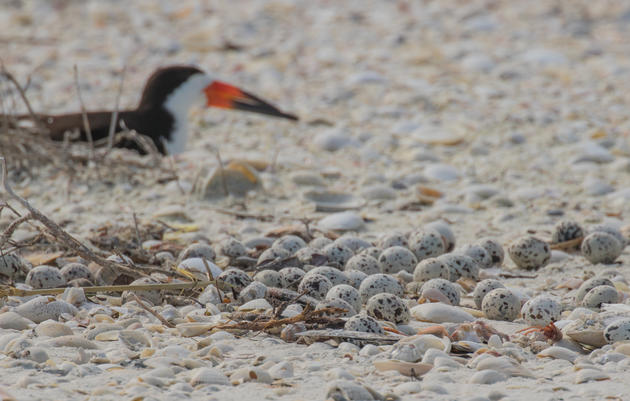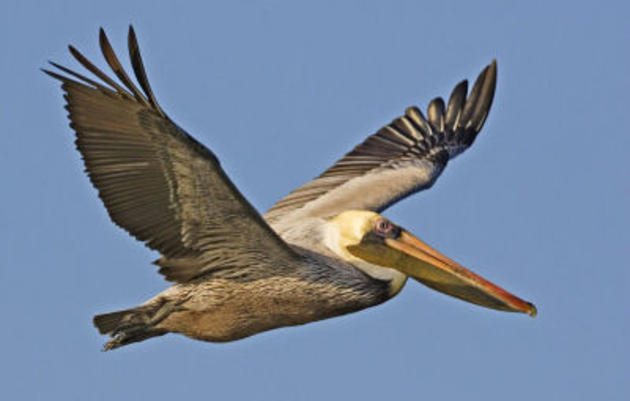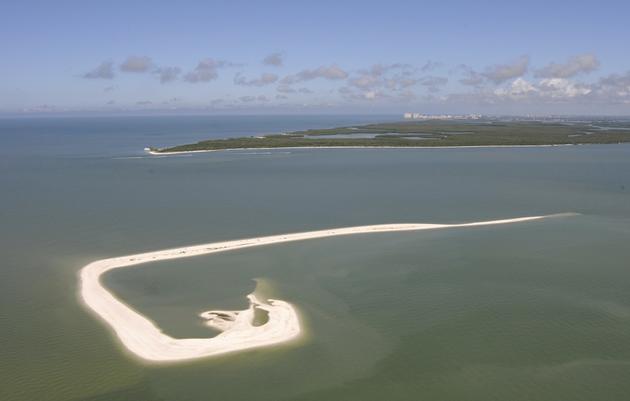Have you ever been downwind to a nesting pelican colony?
I was yesterday, along with five members of the Florida Fish and Wildlife Conservation Commission and their staff. We took a close look at the Brown Pelicans, Black Skimmers, American Oystercatchers and other birds raising chicks on Lanark Reef in Apalachee Bay. Lanark is just one of 14 sites being considered for Critical Wildlife Area designation.
Lanark is a Globally Important Bird Area and boasts the largest concentration of nesting Brown Pelicans along the Panhandle coast. It is a great place for birds – far enough from the land so there are no four-legged predators and in the middle of a productive bay. Yet, Lanark has its challenges. Tropical Storm Colin overwashed the island’s shoals drowning valuable oystercatcher and skimmer chicks. Human disturbance from kayakers and fishers add to the challenges. Surprisingly, many visitors seem not to be able to read the signs that say keep out, birds nesting.
Audubon purchased Lanark’s uplands five years ago to ensure that the island will never be developed. So with a little more enforcement help from state agencies, we may soon ensure a safe and productive refuge.
I was so pleased with the interest the commissioners took in the island, its inhabitants, and the challenges of managing a long, low strip of beach and dune grass. I shared a boat and my binoculars with Commissioner Robert Spotswood from Key West, who I found to be thoughtfully engaged. Likewise, I was impressed by the comments of the FWC officers who make the protection of nesting birds a priority.
It takes real commitment to watch birds with that kind of smell. But the odor told us the birds don’t lack for food. So we just need to make sure they are safe. I am deeply appreciative of the FWC and Division of State Lands staff who are committed to partnerships with Audubon Florida and others to expand our network of Critical Wildlife Areas.
Oh, and good news. Today the FWC commissioners gave staff the green light to bring 14 new Critical Wildlife Areas for designation. Many of these are for nesting waterbirds and the designation will allow for the posting of an enforceable buffer on the water around these sites, to give the birds the space they need. Public meetings have been scheduled in July.
Click here to find a meeting near you and consider attending to lend your support.
The birds need you to give them a voice.









